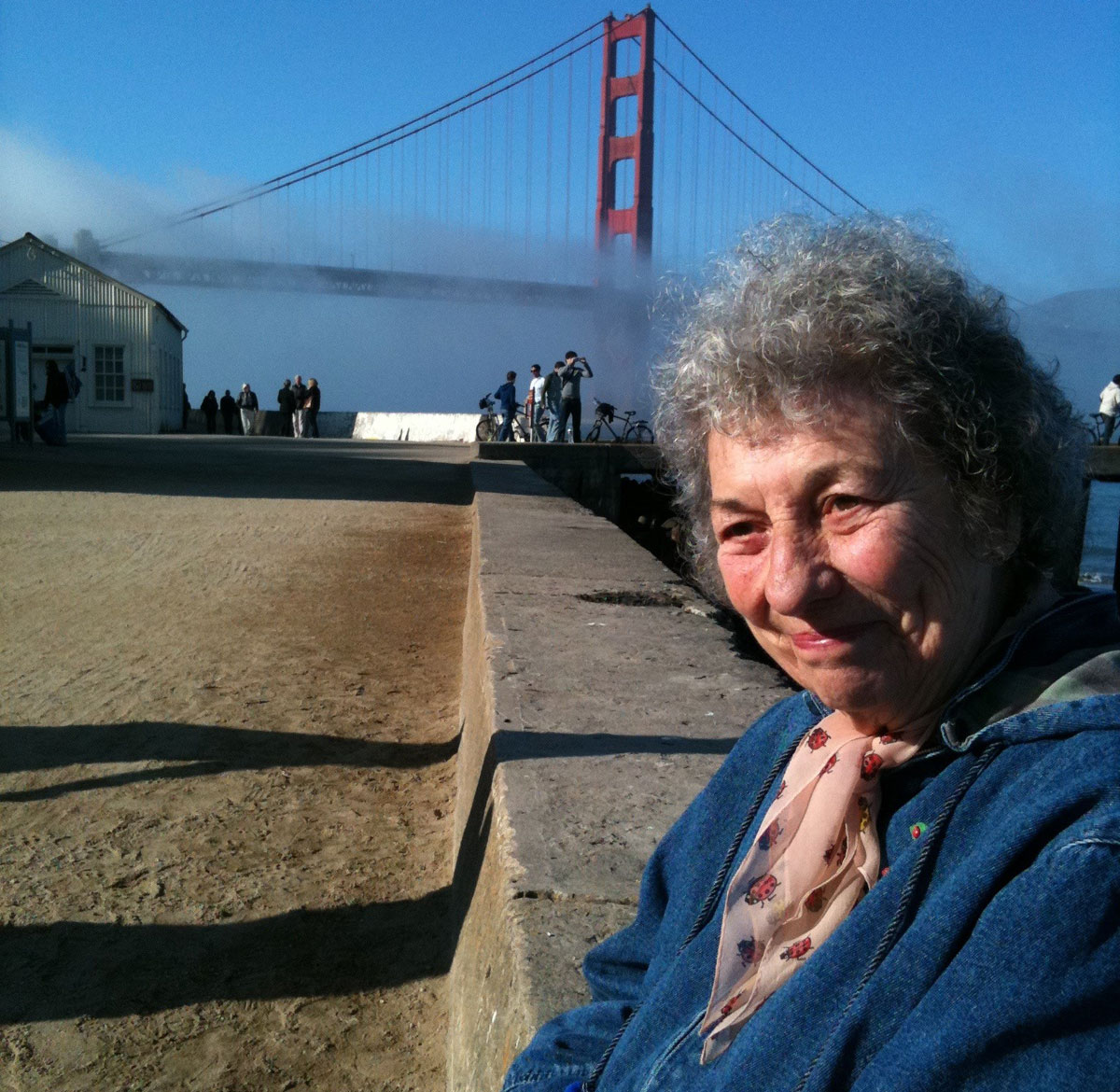Imagine discovering boxes of your loved one’s manuscripts and documents you never knew about until after they passed. Going through a late loved one’s belongings can be a daunting and emotional task. It stirs up memories and feelings long forgotten. Finding items you never knew about, like boxes filled with a life’s journey on paper, provides a new perspective on their story.
What would you do if you found boxes like this after the death of a loved one?
Uncovering A Mother's Legacy
Five years ago, Jennifer McNeil and her siblings were going through their late mother’s possessions when she discovered several boxes filled with manuscripts and documents in the garage of her mother’s home in Daly City, California. She was surprised by the presence of these items and shared with Anderson Archival, “We were unaware that all this work existed in our garage. She didn’t talk about all this stuff. She never said, ‘By the way, when I leave, make sure you find all my manuscripts.'”
Jennifer sifted through the boxes and gained some insight into her mother’s life, from her days as a student at the Eastman School of Music to her time as a teacher in San Francisco. This newfound information motivated Jennifer to research digital preservation to ensure her mother’s work was saved. By preserving this collection, Jennifer and her siblings were able to connect with and remember their mother in a new way.
“This collection is a way of touching my mom.”
Meet Betty Jeanne Wicklund
Betty Jeanne Wicklund grew up in Sioux City, Iowa, as an only child in impoverished circumstances. Despite her difficult childhood, she worked tirelessly to achieve her dreams. In 1945, Betty received a scholarship to attend the renowned Eastman School of Music in Rochester, New York, where she successfully obtained her master’s degree. Though the source of the funds was unknown to her, she was always grateful to an anonymous donor who covered her tuition fees.
After graduation, Betty returned to the Midwest and began working at William Woods University in Fulton, Missouri. Only a few years later in 1947, despite her reluctance to leave the Midwest, Betty moved to California with her parents, as she was an only child and felt responsible for her parents’ well-being. By that time, Betty had already found more educational opportunities than her parents had and was on the path to achieving great things in academia. Jennifer believes that had she remained in the Midwest, she would likely have remained in academia and gotten a Ph.D.
Instead, Betty’s family settled in San Francisco near the Haight-Ashberry District, which would become a hub for the Counterculture Movement in the 1960s. There Betty continued to pursue her love for music and teaching. After compiling a list of local Catholic schools, Betty began visiting and sending letters to the schools in search of a job. One of the schools she visited was Lone Mountain College, now a part of the University of San Francisco. Here she began working as a music instructor in September 1947, teaching courses on opera, symphonic literature, music theory, and music history.
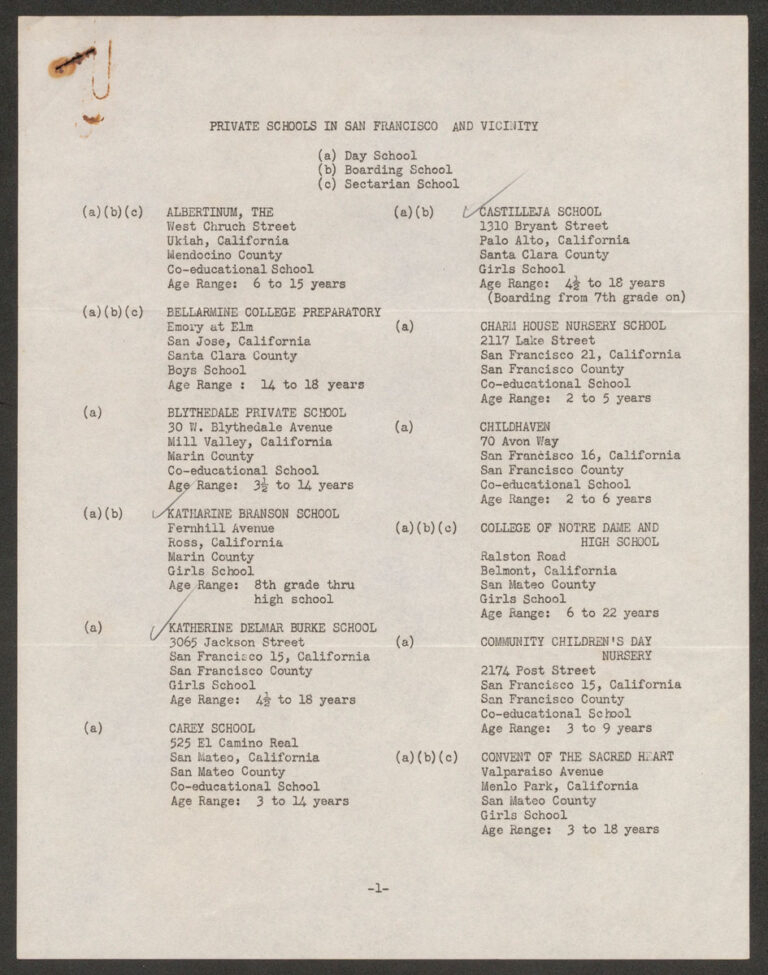
At age 33, Betty met and married her husband Raymond McNeil, a chemist and former Air Force pilot. The couple would have six children within seven years. Despite the demands of motherhood, Betty continued to teach music. Later, she moved to the St. Agnes Catholic School, where she taught young children and shared her passion for music with her students. Moreover, she instilled her love for music in her own children, all of whom play the piano and at least one other instrument.
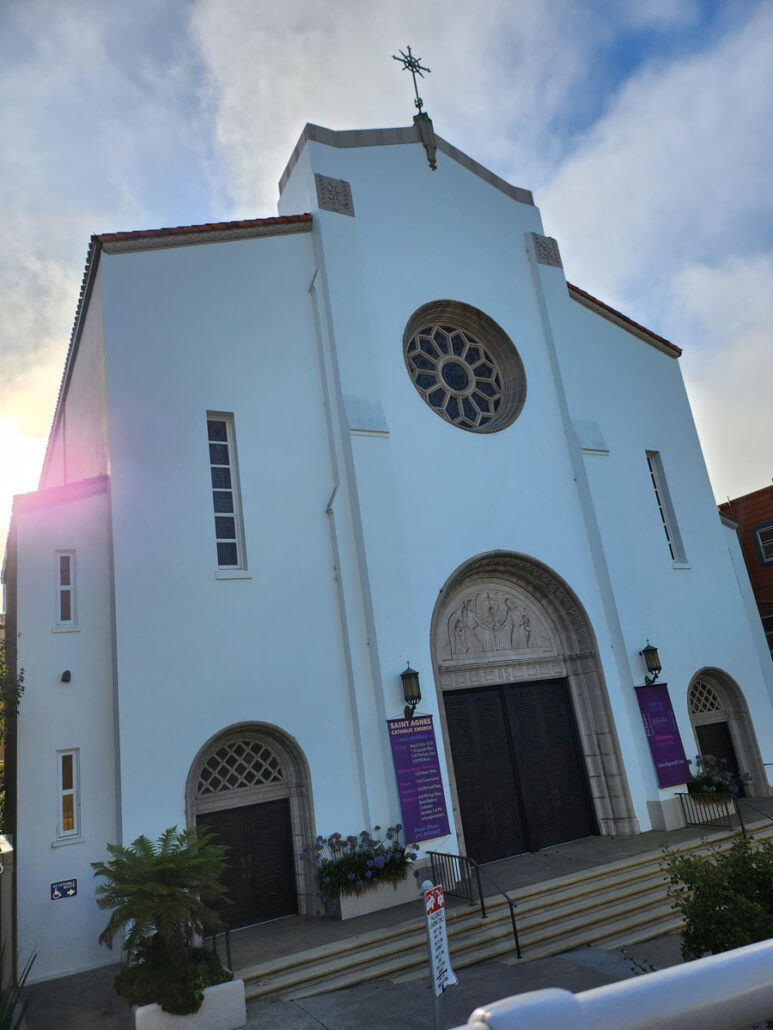
A Life on Paper
The collection chronicles Betty’s journey as a student, educator, and musician from her early years through her time as a college instructor. As a child, she formed the habit of collecting everything she found dear. The collection includes a vast amount of schoolwork from her days as a young schoolgirl to her college years. A few grade school scrapbooks in the collection were sent to our physical conservation partner to restore. These showed young Betty’s great curiosity about the world around her and documented her dreams of caring for a big family.
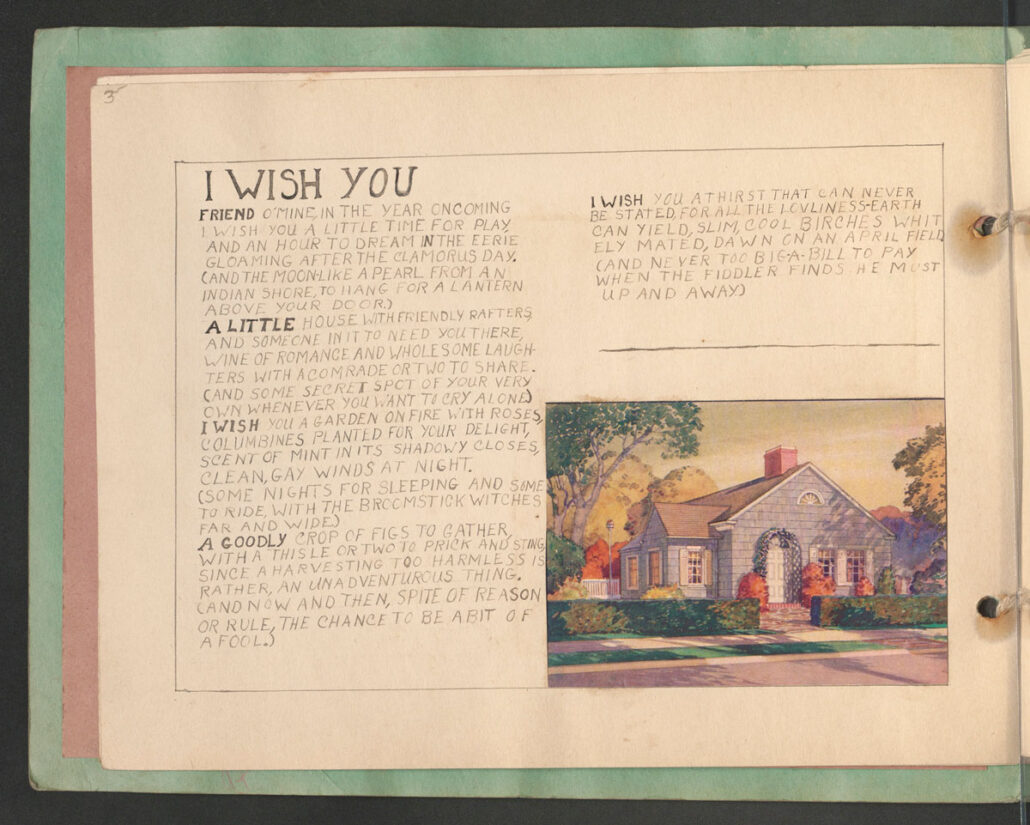
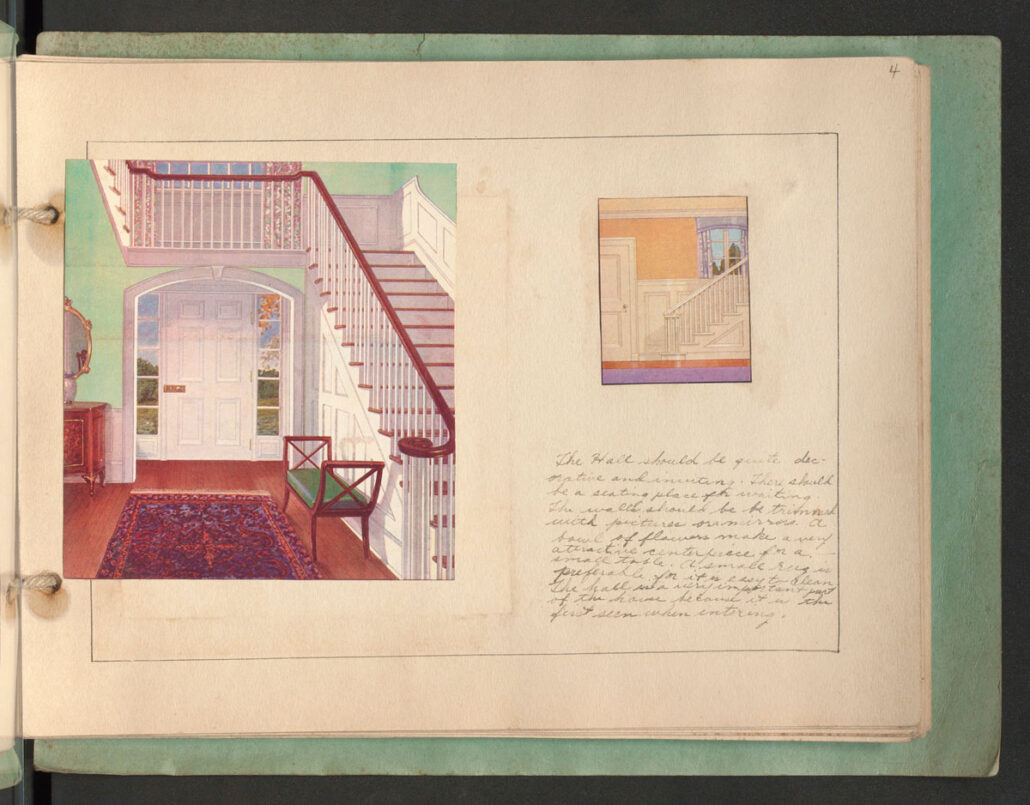
There are many unique pieces within this collection, including the list of potential jobs Betty compiled upon her relocation to San Francisco, as well as teaching materials from throughout her career.
An original copy of Betty’s thesis on Claude Debussy’s “12 Etudes,” a lesser-known work from one of her favorite composers, is part of the collection. Debussy was a leading figure in the Impressionist movement in music during the late 19th century, ushering in a new style and type of music and composing. The Impressionist composers focused on conveying the moods and emotions of their compositions. Jennifer explains her mother’s love for the composer and his music: “It’s different, not the standard fare. I think she was drawn to that, just like she was drawn to everything. That was just what you would not expect of somebody from Sioux City, Iowa, who had nothing.”
Her thesis is also available to read online. Jennifer recalls the moment she informed her mother about discovering her thesis online.
She said, “Mom, I found your thesis.”
“What do you mean, you found my thesis?” her mother replied.
Jennifer confirmed, “It’s online and multiple people have used it in their research.”
According to Jennifer, “My mother was dumbfounded. She couldn’t believe somebody had an interest in what she had written so many years ago. She did touch countless lives.”
Betty’s collection is a testament to her life’s work. It is a treasure trove of her personal and professional journey and offers a unique insight into her life and legacy. A reflection of her passion for learning and commitment to sharing her knowledge, the collection is a valuable resource for anyone interested in music, education, or the life of a remarkable woman dedicated to learning and teaching.
Digitizing a Life
Jennifer chose to digitize her mother’s collection to preserve the stories and memories for both her family and future generations of musicians. She believes in the importance of preserving history and remembering where we came from. Jennifer intends to share the collection with her mother’s former schools and places of work. Recognizing that everything eventually fades away without conscious effort to memorialize, the McNeil family partnered with Anderson Archival to digitally preserve their mother’s collection without hesitation.
“I believe in preserving what we can, I know none of us are going to last forever. These are material things, but they document a time in our country’s history in a very special way.”
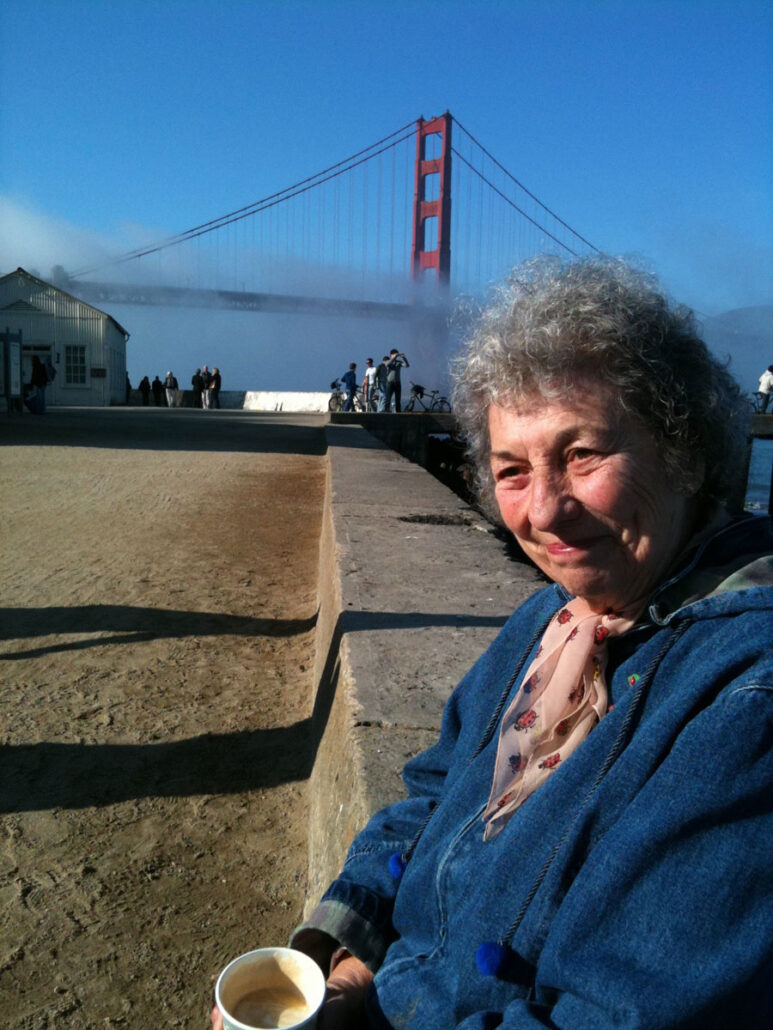
Jennifer began her preservation journey not sure where to start or what to look for until she came across Anderson Archival. She recounts, “I just realized that Anderson Archival had what I was looking for.”
“It was a way of preserving in a very professional and caring way.”
At Anderson Archival, every collection is important, regardless of any monetary value it may or may not possess. If it is important to you, it is important to us! We enjoy helping people share and tell their stories.
Would you like to preserve and digitize your family collection? Begin your digital preservation journey today with Anderson Archival. Contact us to share your story and digitize your collection!


